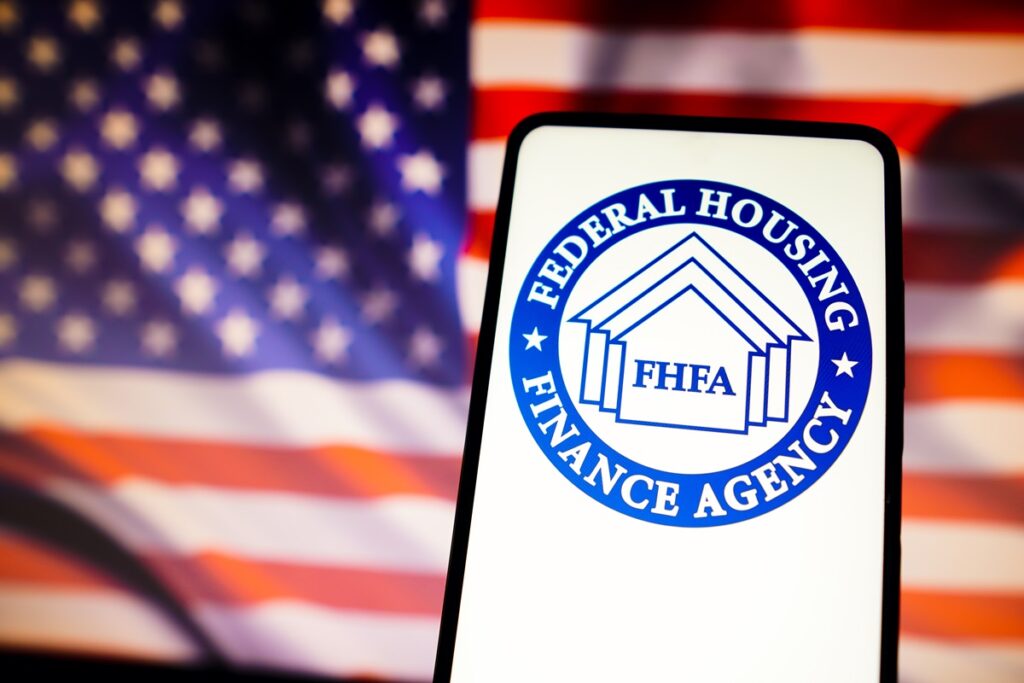The Federal Housing Finance Agency (FHFA) has released its annual Housing Mission Report, detailing the efforts made by Fannie Mae, Freddie Mac, and the Federal Home Loan Banks (FHLBanks) in 2023 to promote access to financing for affordable, sustainable, and equitable housing and targeted economic development.
“FHFA maintains a keen focus on ensuring the entities we regulate fulfill their missions to support access to housing opportunities in a safe and sound manner,” said FHFA Director Sandra L. Thompson. “Ongoing affordability challenges throughout the country only heighten the importance of this responsibility.”
Preserving equitable housing nationwide
Combined, both Fannie Mae and Freddie Mac purchased more than 136,000 single-family mortgages for low- and moderate-income borrowers through their core affordable housing programs, Fannie Mae’s HomeReady and Freddie Mac’s Home Possible. The government-sponsored enterprises (GSEs) also introduced enhancements to these programs, adding a credit of $2,500 for very low-income borrowers that lenders must pass through to borrowers by applying it to the down payment or closing costs.
HomeReady offers low down payment and expanded financing flexibility for homebuyers, a solution utilized by many of the nation’s creditworthy low-income borrowers, whether first-time buyers or repeat buyers. HomeReady’s $2,500 credit for very low-income borrowers can assist in overcoming down payment and closing costs.
The Home Possible Mortgage from Freddie Mac offers qualified very low- to low-income borrowers a low, 3% down payment financing option. Home Possible Mortgage borrowers can also have additional financed properties. Many types of down payment sources are acceptable with Home Possible, including family, employer-assistance programs, secondary financing, and sweat equity.
Special Purpose Credit Program loans
Also in 2023, the GSEs collectively purchased approximately 15,000 Special Purpose Credit Program (SPCP) loans through both lender-sponsored initiatives and their proprietary SPCPs, supporting homeownership for many borrowers in underserved communities.
Under federal law, lenders are permitted to design and implement SPCPs to extend credit to a class of persons who would otherwise be denied credit or would receive it on less favorable terms, under certain conditions. In particular, the Equal Credit Opportunity Act (ECOA) and Regulation B permit creditors to offer or participate in SPCPs to meet special social needs through:
- Any credit assistance program authorized by federal or state law for the benefit of an economically disadvantaged class of persons;
- Any credit assistance program offered by a non-for-profit organization for the benefit of its members or an economically disadvantaged class of persons; or
- Any SPCP offered by a for-profit organization, or in which such an organization participates to meet special social needs, if it meets certain standards prescribed in regulation by the Bureau.
Assisting renters nationwide
Pursuant to the GSE’s Equitable Housing Finance Plans, Fannie Mae and Freddie Mac partnered with vendors responsible for collecting rent payment data from participating multifamily housing property owners and formatting it for dissemination to credit bureaus.
Fannie Mae’s Equitable Housing Finance Plan is a three-year road map designed to overcome inequities in the U.S. housing market. In its second year (2023), the Plan outlined new actions and adaptive changes with the goal of knocking down the barriers to affordable rental housing and homeownership for historically underserved populations. In 2023 alone, Fannie Mae’s key objectives were to:
- Reduce up-front rental and homeownership costs and eliminate outdated barriers.
- Support improved opportunities for long-term success for underserved renters and borrowers.
In 2022, Freddie Mac unveiled its first Equitable Housing Finance Plan, a set of initiatives to help advance equity, affordability, and sustainability for more families in underserved communities. The Plan was designed to underscore the GSE’s commitment to work across the industry to create opportunities for all families to access quality affordable housing and achieve the American Dream.
“We are committed to addressing disparities in homeownership and increasing generational wealth building for communities of color,” said Freddie Mac’s former CEO Michael J. DeVito. “We remain focused on removing barriers and driving change through education, mortgage products and other business solutions.”
Pushing Low-Income Housing Tax Credits
The GSEs invested more than $1.7 billion last year in Low-Income Housing Tax Credit (LIHTC) equity, including transactions that support housing in Duty to Serve-designated rural areas, preserve affordable housing, support mixed-income housing, provide supportive housing, or meet other affordable housing objectives.
The LIHTC program was established in 1986 and made permanent in 1993, and is an indirect federal subsidy used to finance the construction and rehabilitation of low-income affordable rental housing. The LIHTC gives investors a dollar-for-dollar reduction in their federal tax liability in exchange for providing financing to develop affordable rental housing. Investors’ equity contribution subsidizes low-income housing development, thus allowing some units to rent at below-market rates. In return, investors receive tax credits paid in annual allotments, generally over 10 years.
Under the FHLBanks’ Affordable Housing Programs (AHP), LIHTC properties represented more than 43% of their total General Fund projects and 55% of their total General Fund rental projects. The FHLBanks awarded $446.9 million through their AHPs in 2023, nearly $180 million more than in 2022. This funding supported more than 33,000 housing units. The FHLBanks also funded approximately $4.2 billion in Community Investment Program (CIP) housing advances in 2023, supporting nearly 32,000 units, 11,000 more units than in 2022.
Click here for more information on the FHFA’s 2023 Housing Mission Report.




